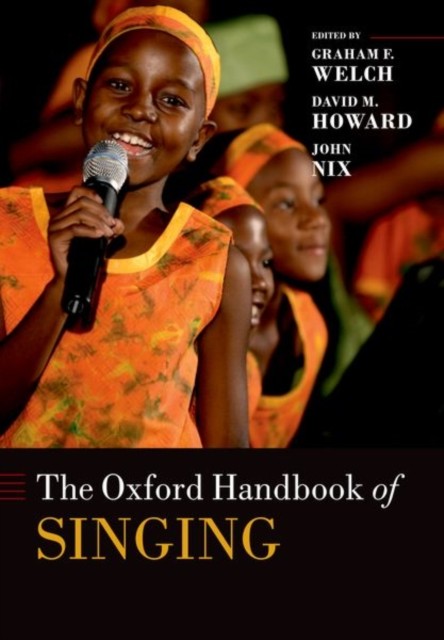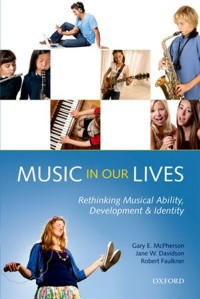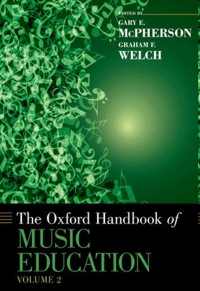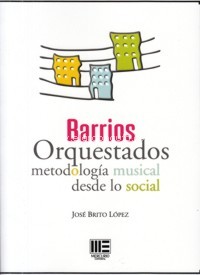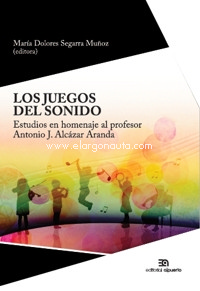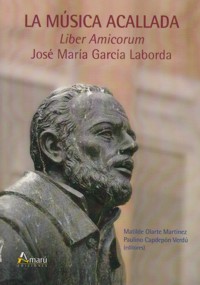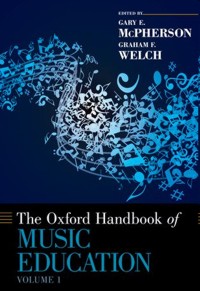
The Oxford Handbook of Music Education, vol. 1
McPherson, Gary E.
;Welch, Graham
Oxford University Press. 2012Ficha técnica
- EAN: 9780199730810
- ISBN: 978-0-19-973081-0
- Editorial: Oxford University Press
- Fecha de edición: 2012
- Encuadernación: Cartoné con sobrecubierta
- Dimensiones: 18x25,5
- Idioma: Inglés
- Nº páginas: XXXVI+944
Impresión bajo demanda
Disponibilidad sujeta a la información del editorPVP. 302,40€
Añadir a la Lista de deseos
Music education takes place in many contexts, both formal and informal. Be it in a school or music studio, while making music with friends or family, or even while travelling in a car, walking through a shopping mall or watching television, our myriad sonic experiences accumulate from the earliest months of life to foster our facility for making sense of the sound worlds in which we live. "The Oxford Handbook of Music Education" offers a comprehensive overview of the many facets of musical experience, behavior and development in relation to this diverse variety of contexts. In this first of two volumes, an international list of contributors discuss a range of key issues and concepts associated with music learning and teaching. The volume then focuses on these processes as they take place during childhood, from infancy through adolescence and primarily in the school-age years. Exploring how children across the globe learn and make music and the skills and attributes gained when they do so, these chapters examine the means through which music educators can best meet young people's musical needs. The second volume of the set brings the exploration beyond the classroom and into later life. Whether they are used individually or in tandem, the two volumes of The Oxford Handbook of Music Education update and redefine the discipline, and show how individuals across the world learn, enjoy and share the power and uniqueness of music.
CONTENIDO:
Handbook Preface
Acknowledgments
External referees
Part 1. Music education and the role of music in people's lives (eds. Graham F. Welch, Gary E. McPherson)
1. introduction and commentary: Music education and the role of music in people's lives (Graham F. Welch, Gary E. McPherson)
2. Music's place in education (Wayne Bowman)
3. International perspectives (Marie McCarthy)
4. A philosophy of music education (David J. Elliott)
5. Cultural diversity: Beyond 'songs from every land' (Huib Schippers, Patricia Shehan Campbell)
6. Some contributions of ethnomusicology (Bruno Nettl)
7. Musical identities mediate musical development (David J. Hargreaves, Raymond MacDonald, Dorothy Miell)
8. Supporting motivation in music education (James M. Renwick, Johnmarshall Reeve)
9. Becoming a music learner: Towards a theory of transformative music engagement (Susan A. O'Neill)
10. Initiating music programs in new contexts: In search of a democratic music education (Graça Mota, Sérgio Figueiredo)
11. Implications of neurosciences and brain research for music teaching and learning (Donald Hodges, Wilfried Gruhn)
Part 2. Music learning and teaching in infancy and early childhood (ed. Margaret Barrett)
1. Commentary: Music learning and teaching in infancy and early childhood (Margaret S. Barrett)
2. Musical lives of infants (Mayumi Adachi, Sandra E. Trehub)
3. Musicality and musical culture: Sharing narratives of sound from early childhood (Colwyn Trevarthen, Stephen Malloch)
4. Music and language in early childhood development and learning (Lily Chen-Hafteck, Esther Mang)
5. Musical participation from birth to three: Towards a global perspective (Susan Young, Beatriz Ilari)
6. Creative meaning-making in infants' and young children's musical cultures (Margaret S. Barrett, Johannella Tafuri)
Part 3. Music learning and teaching during childhood: Ages 5-12 (ed. Kathryn Marsh)
1. Commentary: Music learning and teaching during childhood: Ages 5-12 (Kathryn Marsh)
2. Children's ways of learning inside and outside the classroom (Eve Harwood, Kathryn Marsh)
3. Creating in music learning contexts (Jackie Wiggins, Magne Espeland)
4. Meaningful connections in a comprehensive approach to the music curriculum (Janet R. Barrett, Kari K. Veblen)
5. Multiple worlds of childhood: Culture and the classroom (Chee-Hoo Lum, Kathryn Marsh)
6. Music education in the generalist classroom (Neryl Jeanneret, George DeGraffenreid)
7. Instrumental ensemble learning and performance in primary school (Sharon G. Davis)
Part 4. Music learning and teaching during adolescence: Ages 12-18 (eds. Oscar Odena, Gary Spruce)
1. Commentary: Music learning and teaching during adolescence: Ages 12-18 (Gary Spruce, Oscar Odena)
2. Teaching, learning and curriculum content (Chris Philpott, Ruth Wright)
3. Youth culture and secondary education (Randall Everett Allsup, Heidi Westerlund, Eric Shieh)
4. Assessment in the secondary music classroom (Martin Fautley, Richard Colwell)
5. The community music facilitator and school music education (Lee Higgins, Brydie-Leigh Bartleet)
6. Creativity in the secondary music classroom (Oscar Odena)
7. Technology in the lives and schools of adolescents (S. Alex Ruthmann, Steven C. Dillon)
Part 5. Vocal and Choral Music (ed. John Nix)
1. Commentary: Vocal and choral music (John Nix)
2. Solo voice pedagogy (Jean Callaghan, Shirlee Emmons, Lisa Popeil)
3. Group and ensemble vocal music (Sten Ternström, Harald Jers, John Nix)
4. The young singer (Ken Phillips , Jenevora Williams, Robert Edwin)
5. The older singer (Robert T. Sataloff, Jane Davidson)
6. Voice health and vocal education (John Nix, Nelson Roy)
Part 6. Instrumental Music (ed. Susan Hallam)
1. Commentary: Instrumental music (Susan Hallam)
2. Processes of instrumental learning: The development of musical expertise (Susan Hallam, Alfredo Bautista)
3. Practice (Andreas C. Lehmann, Harald Jorgensen)
4. The changing face of individual instrumental tuition: Value, purpose and potential (Andrea Creech, Helena Gaunt)
5. Building musicianship in the instrumental classroom (Robert A. Duke, James L. Byo)
6. Psychological and physiological aspects of learning to perform (Ioulia Papageorgi, Reinhard Kopiez)
7. Musical instrument learning, music ensembles, and musicianship in a global and digital age (Frederick Seddon, Michael Webb)
8. The role of bodily movement in learning and performing music: Applications for education (Jane Davidson)
Part 7. Ensembles (ed. Jere T. Humphreys)
1. Commentary: Ensembles (Jere T. Humphreys)
2. The sociology and policy of ensembles (John W. Richmond)
3. North American school ensembles (William R. Lee, Michael D. Worthy)
4. Once from the top: Reframing the role of the conductor in ensemble teaching (Steven J. Morrison, Steven M. Demorest)
5. Community music ensembles (Don Coffman, Lee Higgins)
6. Youth orchestras (Margaret Kartomi)
7. Popular music ensembles (Carlos Xavier Rodriguez)
8. Pathways to learning and teaching Indigenous and World Music ensembles (Robert Burke, Sam Evans)
Index


